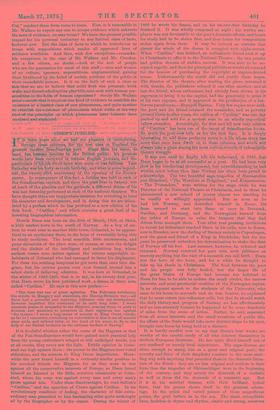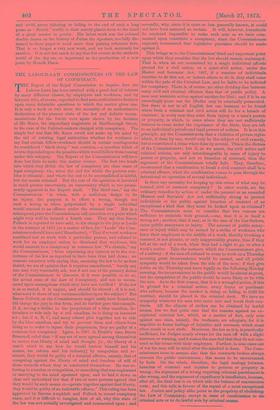brut 1)9511305 scr hinothrilignek " ,julfrADItrz, sasfra 5111 p,riisoqqns
44/288 r no
ag-TY nt ,sigranth "
fritsoerFs m
0- Bra Toe nun norrq s o a,. o all ID 1411•14II" !, nanis„, at; least has... MI iii 51 .10 X1. • o. e fa to. A. e is, -I vie ; .,.. ,aorrgalgiitT -I-vs sufwasss- nay f. e rt.-T., salisitgur— 1 tue I oi • Av..ss sin-T.70T 11110 to .no 11 05 0 I
For emew
ctweithpon with more or less I nem. ,1511/1110 C t 1111),1) f 1Voi /DI 70 aui Jsr risfrifSffirw as , a I. ,.:.i.mn to,si, a an .. , 1 _Tonicl,what is more ime -, ia anniversary of, the ojeenipg or _ma II, rary a:-.rr iii, Witf11 ',.1.c -. j. ii -v It.. ,i-aeii.,;,,act.7::,f il ryq 4-7, 3,-.2, ,qecuo ,er ' a 4 51 nacto_ts a...-vu, , en,rin&cmAtis, tuttt since the insp. paxpny, out ofpreach PI the plaudits and the garlands, a different drama of his 'was lastSaturday performed at each of the national theatres. We have thought this a not inopportune occasion for reviewing in brief his character and development, and in doing this we are stimu- lated by a preface which he has prefixed to a new edition of his first book, " Catilina,” and which contains a great deal of in-
teresting biographical information. ,
Henrik Ibsen was born pn the 20th of March, 1828, at Skien, a little market-town in the south of Norway. As a boy of six- teen he went over to another little town, Grins3taid, to be anpren- ticed to an apothecary there, in, the hope of eventually being able to study medicine. The local scandals, little excitements, and puny chronicles of the place were, of coarse, at once the delight and the disdain of the intelligent and ambitious boy, whose earliest verses were satires against the various respectable in- habitants of Grimstad who had managed to incur his displeasure. For these too scathing lampoons he got more than once into dis- grace, but his, serious poems even now formed around him a reelect circle of believing admirers. It was here at Grinastad, in the winter of 1818-1849, that is to say, in his twenty-first year, that Ibsen wrote his first published work, a drama in three acts, called "Catilina.” He says in this new preface :— "The time was One - of great agitation. The February revolution, 'the revolts in Hungary and elsewhere, the Slesvig-Holstein war,—all these had a powerful and maturing influence over my development, however imperfect this continued t6 be until long after. I wrote sonorous poems of sympathy to the Magyars, praying them, in piety to freedom and manhood, to persevere in their righteous war against the tyrants;' I wrote li long series of sonnets to King Oscar, chiefly, as far as I remember, containing an exhortation to him to set all meaner aims aside, and wjthout delay, at the bead of his army, to fly to the help of our Danish brethren on the extreme borders of Slesvie.."
It is doubtful whether either the cause of the Magyars or that of the Pan-Scandinavians would have gained much practical help from the young enthusiast's winged or still unfledged words, but at all events, they never saw the light. Public opinion in Grim- stad ran high against them ; the poems to the Magyars were voted ridiculous, and the sonnets to King Oscar impertinent. Mean- while the poet found himself in a curiously similar position to his revolted friends the Magyars, for as they were in war against all the conservative interests of Europe, so Ibsen found himself an Ishmael in the little, sensitive community at Grim- stad, where his verse was against every man and every man's prose against him. Under these disadvantages, he read Sallust's 4‘Catiline," and the speeches of Cicero against Catiline. In his revolutionary condition of feeling, the character of this extra- ordinary man presented to him fascinating sides quite unthought of by the biographer or by the orator. During the winter of 1848 he wrote his drama, and on his twenty-first birthday he. finished it. It was wholly composed at night ; his worthy em- ployer was not favourable to the poet's dramatic efforts, and hours for study had to be stolen first, and then hours for composition stolen again from these. It may be noticed as curious that almost the whole of the drama is occupied with night-scenes. When "Catilina" was finished, an enthusiastic friend took it up to Christiania to offer it to the National Theatre ; the two youths had golden dreams of sudden success. It was sure to be ac- cepted eagerly, and then the principal, publishers would all contend for the honour of purchasing the copyright at unprecedented terms. Unfortunately the result did not justify these hopes. The director of the theatre, after reading the piece, returned it with thanks, the publishers refused it one after another, and at last the friend, whose enthusiasm had already been shown in his eagerness to bring it to the capital, had the generosity to print it at his own expense, and it appeared as the production of a bar- barous pseudonym,—Brynjolf Bjarme. Very few copies were sold, the poet and his friend retained the remainder, and as poverty 'pressed Ibsen in after year!, the edition of Catilina" was one day packed up and som fornlodest sum to an wholly unpoetical tall9W79haVer,i Accordingly, the first and till now only edition of h Catilinti"has 'V.e4 one a the rarest of Scandinavian boOkS. So 1111161a1 ilsoa now tells us for the first IM It • de ls . • '1 1C■1 EiLl 101 e'tB-•it e* Hi.le4s Interesting, a ct these prefatory np,s to 14110105C story 'OcU'in 'iqurt:e CoIttjuttins,'viti'd which 'iijl .a rpm ifp nlace,an ongthemost curious records or cudo m itakle icsigfr.
7 .
2v, Ent not uty flnally left his fatherland in 1861, that sen enpe at all auccessful as a poet. Ile had been very 805.113 )-37 ,istw fly of , intellectual development, but notwithgtanding he had 't much before then that Norway has since teen proud to f 9 / nowledge. The two beautiful saga-tragedies of Ifxrmxneldne pad lir.rgeland, "'iii. Warriors at IIelgeland," arid 1Congsesanerne, " The "Pietenders," were written for the stage while he was Director of the National Theatre at Christiania, and in these he commenced a new school of poetry _almost too startling to be readily or willingly appreciated. But as soon as he had left Norway, and domiciled himself in Rome, his fame seemed to start into flame at once in Denmark, Sweden, and Germany, and the Norwegians learned from the critics of Europe to value the treasure that they had .driven from amongst them. Year after year pressing invitations to revisit his fatherland reached Ibsen in his exile, now in Rome, now in Dresden, now the darling of literary society in Copenhagen, now the guest and friend of a King in Stockholm, but for ten years he preserved unbroken his determination to shake the 'dust of Norway off his feet. Last summer, however, he relented and returned. Norway received her poet with such jubilance as scarcely anything but the visit of a monarch can call forth ; Ibsen was the hero of the hour, and for a while he thought to take up his abode in Christiania. The feud between the poet and his 'people was fully healed, but the larger life of the great States of Europe had become too habitual to Ibsen for him to be able to endure the small circles, the narrow interests, and semi-provincial crudities of the Norwegian capital. In an eloquent speech to the students of the University, who came to his house to serenade and do him honour, he explained that he must return into voluntary exile, but that he should watch the daily history and progress of Norway no less affectionately and no less minutely because he happened to be some hundreds of miles from the scene of action. Rather, he said, separated from all minor interests and the small vexations of public life, the affairs of the State would take more distinct shape to his eyes, brought into focus by being held at a distance.
It is hardly needful now to say that Ibsen's best works are worthy of the careful study of all who interest themselves in modern European literature. He has quite lifted himself out of any confined or merely local importance. His saga-dramas are alone enough to stamp him as a great and original poet ; the severity and force of their simplicity contrast in the most start- ling way with anything that preceded them in the dramatic litera- ture of the North ; they are no less original and modern in their form than the tragedies of Ohlenschlager were in the beginning of the century, and they satisfy the demands of a realistic as well as those did the demands of a romantic age. But it is in his satirical dramas, with their brilliant, lyrical form, that his genius shows itself to the greatest advan- tage. In the quick and varied pauses of these magnificent poems, the poet bathes as in the sea. The short, octosyllabic lines, faultless in rhyme and rhythm, elastic and strong, sonorous and vivid, never faltering or failing to the end of such a long poem as "Brand," testify in their merely plastic form to the hand of a great master in poetry. His latest work was the colossal double drama on the history of Julian the Apostate, too fully dis- cussed in these pages to need more than passing reference here. That is no longer a very new work, and we look anxiously for another, it is not too much to say that few events in the esthetic world of the day are so important as the production of a new poem by Henrik Ibsen.



































 Previous page
Previous page